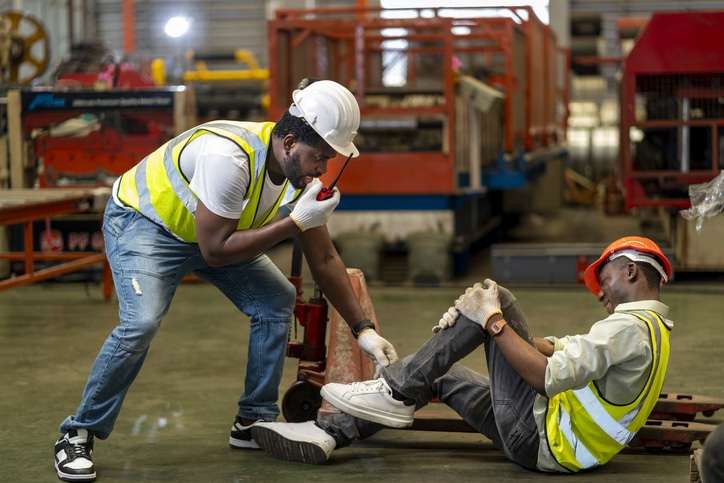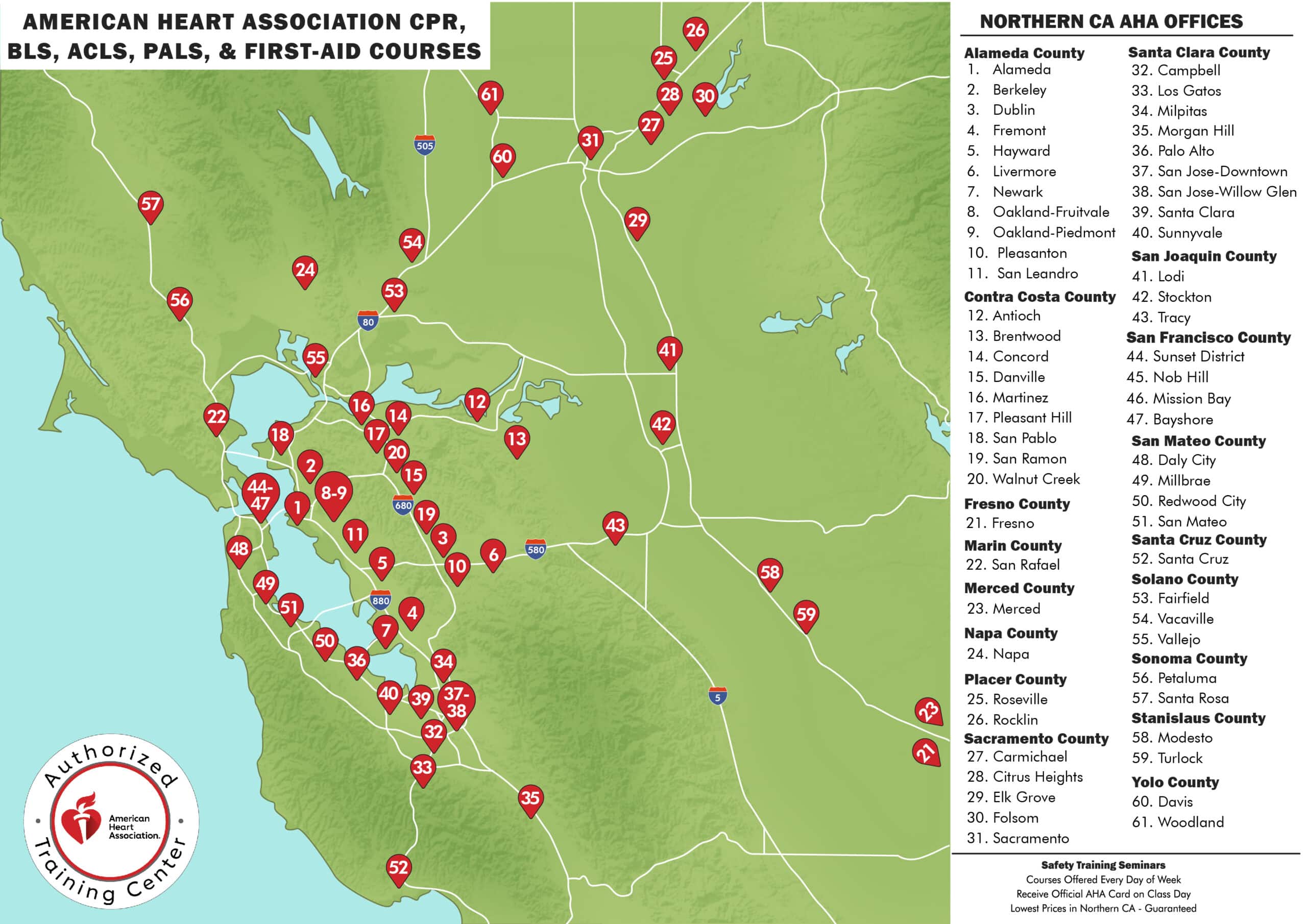American Heart Association© CPR & First-aid Classes in Tracy

CPR, AED, And First-aid
Course Name: CPR, AED, and First-aid
Online Course Length: About 2 hours (In your home)
Skills Testing: 30-50 minutes at one of our CPR testing sites
Description: CPR (all ages), AED, bleeding, burns, seizures, epi-pen, etc.
Price: $89 (For Safety Training Seminars certification card)
Upgrade to AHA Pediatric (EMSA approved for child care): Extra $40
Upgrade to American Heart Association certification: Extra $40
When: CPR & First-aid classes are offered Monday – Sunday throughout the day.
Where: Courses are offered in over 60 cities across Northern California.
Card Issuance: You will receive the certification card on the day of class.
Low Price Guarantee: If you find a lower price, we will match the price.
View Upcoming CPR & First Aid Courses in Tracy
View CPR & First-aid Courses in Tracy & Other Cities Near You

Equipped to Save Lives: CPR & First-Aid Certification Classes in Tracy
CPR and first-aid certification classes are essential for individuals seeking to acquire life-saving skills and knowledge. In Tracy, California, these classes are offered by the American Heart Association. This article explores the significance of CPR and first-aid certification, the offerings of these classes in Tracy, and the impact they have on the community’s preparedness to respond to emergencies.
The Importance of CPR & First-Aid Certification
CPR (Cardiopulmonary Resuscitation) and first-aid certification are vital skills that can mean the difference between life and death in an emergency. CPR is used to revive individuals who are in cardiac arrest, while first-aid training teaches individuals how to provide immediate care to someone who is injured or suddenly falls ill. These skills are especially crucial in situations where professional medical help may not be immediately available, such as at home, in the workplace, or in public settings.
Offerings of CPR & First-Aid Certification Classes in Tracy
In Tracy, CPR and first-aid certification classes are offered by the American Heart Association. These classes are typically taught by certified instructors who provide hands-on training in CPR techniques, as well as instruction in basic first-aid procedures. The curriculum covers a range of topics, including how to recognize and respond to cardiac emergencies, perform CPR on adults, children, and infants, use an automated external defibrillator (AED), and manage common injuries and illnesses.
Impact on the Community
The impact of CPR and first-aid certification classes in Tracy extends beyond the individuals who receive training. By equipping members of the community with life-saving skills, these classes help create a safer environment for everyone. In the event of an emergency, individuals who are trained in CPR and first-aid can provide immediate assistance, potentially saving lives and reducing the severity of injuries.
Furthermore, CPR and first-aid certification classes promote a culture of preparedness and safety in Tracy. As more people become certified, the community becomes more resilient and better able to respond to emergencies. This can lead to a decrease in the number of deaths and injuries caused by cardiac arrest, accidents, and other medical emergencies.
Conclusion
CPR and first-aid certification classes in Tracy play a crucial role in promoting safety and preparedness in the community. By providing individuals with the skills and knowledge they need to respond effectively to emergencies, these classes help save lives and reduce the severity of injuries. As more people in Tracy become certified in CPR and first aid, the community becomes a safer place for everyone.
FAQs
Who should attend CPR & First-Aid certification classes in Tracy?
CPR & First-Aid certification classes are suitable for anyone who wants to learn life-saving skills, including parents, teachers, caregivers, healthcare professionals, and members of the general public.
How long does a CPR & First-Aid certification course typically last?
CPR & First-Aid certification courses usually span over one to two days, depending on the training provider. The course includes a combination of classroom instruction, skills practice, and hands-on demonstrations.
Is there a renewal requirement for CPR & First-Aid certification?
Yes, CPR & First-Aid certifications are typically valid for two years, after which individuals are required to undergo renewal courses to maintain their certification. Renewal courses often include updates on guidelines and practice of skills.
